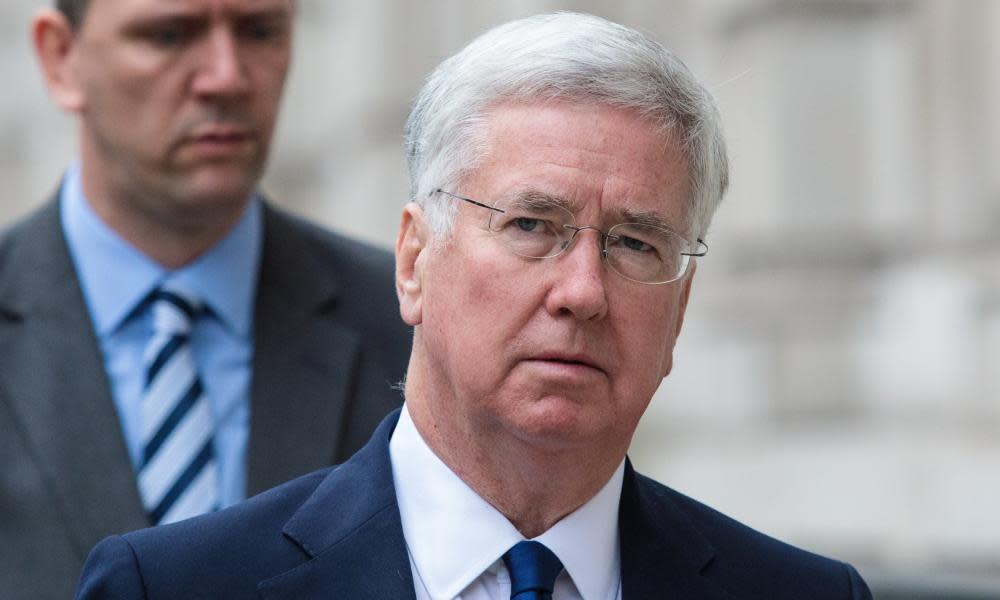The Guardian view on defence and the election: where’s the debate gone? | Editorial

Issues of national defence were predicted to loom large in the 2017 election. Theresa May’s claims to be uniquely qualified to take big decisions about security issues were central to the pitch with which she began the campaign. Jeremy Corbyn’s opposition to nuclear weapons and British military engagements were set to be a favoured Tory target. In addition, in the middle of the election, Donald Trump, who may be president of the United States until 2025, came to Europe to a Nato summit trailing a disruptive security agenda of his own.
In spite of all this, there is a hole in this election where a serious debate about Britain’s defence stance, especially after Brexit, should be. This can’t simply be put down to the post-Manchester hiatus. With less than two weeks to go, the campaign seems increasingly unlikely to focus on the defence policies appropriate to Brexit Britain and to this country’s changing status in a world destabilised by Mr Trump. This is a major political failure.
Last week, before the slaughter in Manchester, the Royal United Services Institute did at least host a debate between the parties on defence. It was perhaps a sign of Conservative complacency on these issues that the defence secretary, Michael Fallon, did not turn up. Instead he sent the defence procurement minister, Harriett Baldwin, who parroted her party’s lines-to-take about Mrs May’s strength and stability, the commitment to spending 2% of GDP on defence, and the excitement of post-Brexit “global Britain”.
This is infantile stuff. It insults the defence thinkers who recognise that post-Brexit Britain has to assess anew where its threats come from and who its allies are, something highlighted by Mr Trump’s visit to Brussels. It insults the military planners who agonise over whether the UK has sufficient appropriate conventional defence capability alongside the prestige projects like Trident and the prospective two new aircraft carriers. And it insults the frontline service personnel who haven’t had a decent pay rise in a decade, while putting themselves in harm’s way and, in some cases, being sued for it, and who are increasingly getting out of the forces early.
The opposition parties have mainly kicked these difficult issues into the long grass by promising a strategic defence review if they are elected. But in the Rusi debate, they were also the parties saying interesting things. At least Labour recognises that pay and retention are urgent problems and that the criteria for reaching the 2% spending target have become ridiculously elastic (the elastic could stretch further if the pound falls and the economy stagnates). At least the Liberal Democrats grasp that Britain must remain absolutely committed to European collective defence after Brexit, whether that takes the form of Nato – which is threatened by Mr Trump’s unpredictability – or enhanced EU defence. At least the Greens are willing to say that future security threats come from climate change and migration challenges, not just from Vladimir Putin or Kim Jong-un.
The Tories, by contrast, have made no commitment to a review. They act for all the world as if nothing needs to change in British defence thinking in the wake of Brexit. They act as if Britain’s much reduced army and navy have reached ideal sizes for a country that talks as if it intends to play the role of a global power. Since the Conservatives appear the likely government after 8 June, their approach is both complacent and irresponsible. In practice, they will have to grasp the defence review nettle and make some tough choices. At the moment, though, they are simply mouthing platitudes about defence and getting away with it. In the campaigning days that remain, everything should be done to end that evasion.

 Yahoo News
Yahoo News 
